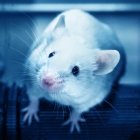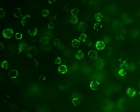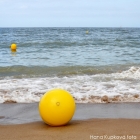Press monitoring
Geneticists use CRISPR to cut toxic protein out of the aging equation
22.2.2019 | Press monitoring
There is much we don't understand about the aging of the human body, but working with what we do know researchers continue to uncover potential new ways to slow down the process. Among them is a team of genetic scientists at the Salk Institute, which has developed a new therapy using the CRISPR/Cas9 tool that has greatly boosted the lifespan of...
Genetics efforts enriching nutrition of popcorn, sorghum
20.2.2019 | Press monitoring
Two kernels of the same idea – cultivating protein quality in cereal grains – are reaching maturity at the University of Nebraska–Lincoln. The quality of protein often gets overshadowed amid the spotlight on its quantity. But that quality – the presence or absence of amino acids essential to the diets of humans and livestock – occupies the mind...
Pioneers in Direct-to-Consumer DNA Test Kits Work with F.B.I. to Catch Killers
18.2.2019 | Press monitoring
In 2000, when Bennett Greenspan, President and Founder of Gene-by-Gene Ltd. and FamilyTreeDNA, launched FamilyTreeDNA as the first direct-to-consumer DNA testing company, he never imagined that it would lead to the creation of a booming industry. An avid genealogist, Greenspan created FamilyTreeDNA to help other family researchers solve problems...
One step closer to growing made-to-order human kidneys
15.2.2019 | Press monitoring
In a study with significant implications for human organ transplantation, researchers have successfully grown functional mouse kidneys inside rats from just a few donor stem cells. The results of the study, led by researchers from the National Institute for Physiological Sciences in Japan, will be published in an upcoming issue of Nature...
Converting cells into new neurons could lead to a pill that repairs brain damage
13.2.2019 | Press monitoring
As powerful as the human brain is, once it's damaged it can't really recover completely. Now researchers at Penn State may have found a way to boost the brain's regenerative abilities, using certain molecules to convert neighboring cells into new neurons. The technique could eventually lead to pills that treat brain injuries, stroke or...
Chimpanzee mini-brains hint at secrets of human evolution
11.2.2019 | Press monitoring
At some point during human evolution, a handful of genetic changes triggered a dramatic threefold expansion of the brain's neocortex, the wrinkly outermost layer of brain tissue responsible for everything from language to self-awareness to abstract thought. Identifying what drove this evolutionary shift is fundamental to understanding what makes...
Micromotors deliver oral vaccines
8.2.2019 | Press monitoring
Vaccines have saved millions of lives, but nobody likes getting a shot. That's why scientists are trying to develop oral vaccines for infectious diseases. But to be effective, the vaccine must survive digestion and reach immune cells within the intestinal wall. Now, researchers reporting in the ACS journal Nano Letters have developed oral...
Red-eyed mosquitoes engineered to break the chain of Zika virus transmission
6.2.2019 | Press monitoring
Scientists in Australia are looking at some pretty creative ways to tackle the Zika virus, which continues to pose a risk to millions across Africa, Asia and parts of the Americas. Following a trial last year where researchers were able to decimate disease-spreading mosquitos in the country's north, scientists have now demonstrated an engineering...
Graphene biosensor could provide early lung cancer diagnosis, research shows
4.2.2019 | Press monitoring
The wonder-material graphene could hold the key to unlocking the next generation of advanced, early stage lung cancer diagnosis. A team of scientists from the University of Exeter has developed a new technique that could create a highly sensitive graphene biosensor with the capability to detect molecules of the most common lung cancer...
The ocean is full of drifting DNA. The United States needs to collect it, researchers say
1.2.2019 | Press monitoring
U.S. government agencies monitoring fisheries, endangered species, and environmental impacts ought to leverage the DNA present in every drop of seawater, say the organizers of a conference on marine environmental DNA (eDNA), held at Rockefeller University in New York City in November 2018. Biological surveys based on eDNA are reliable and poised...
































